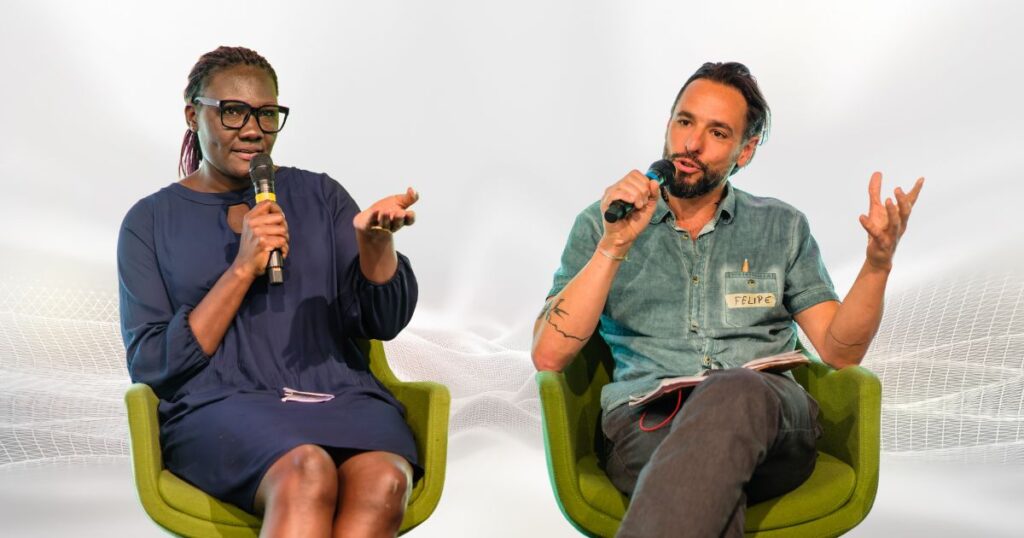
Linda Bonyo and Felipe Fonseca take on the trailblazing conversation of what the future of policy looks as makers in those positions of change. They touch upon the importance of fostering open and constructive policy dialogues to achieve effective governance. This would involve engaging with various stakeholders, including citizens, experts, and interest groups, to ensure a comprehensive understanding of the issues at hand and to craft well-rounded policies that address multiple perspectives.
The two speakers touch on the theme of commonalities. As Felipe explains, the diversity of commonalities is to be understood through the metaphor of the seed.
The story begins in the context of the leftist government and civil society; some vacant positions within the government prompted individuals with activist backgrounds to step in and take up these roles. This experience led to a realization that they had become an integral part of the government machinery. They were well aware that their first responsibility was to caution communities against placing blind trust or heavy reliance on the government, considering the likelihood of future changes in governance.
Felipe expands on the notion of civil society actors as active members in government through this concept further, they initiated a new project called “semente” (meaning “seed” in Portuguese). Rather than viewing a seed merely as a unit of genetic preservation, they emphasized its role in propagating genetic diversity.
Instead of replicating a single idea over and over (akin to cloning), the seed symbolized creating and disseminating diversity, altering conditions to foster thriving life. Moreover, the seed was seen as a connection to the past, representing millions of years of evolution that led to its unique genetic configuration. It also served as a way to connect without relying solely on present connections. Acknowledging that a seed’s growth depended on factors such as soil, air, sunlight, and water underscored the importance of interdependence.
The ultimate goal was to develop a method or toolkit to enhance and generate community-based ideas. They encouraged thinking of the seed as a community rather than externalizing what is essential through a single idea. This involved capturing the diversity of commonalities within the community to create meaningful and relevant projects. Similarly, Linda adds that a thriving variety of commonalities also looks at who participates and how organizations are set up. In doing so, it considers sustainability. For instance, in the Kenyan context, Linda pointed out the issue of a gap in the digital rights movement between Africa and Europe. She highlighted the need for a more balanced policy exchange where Africa can learn from Europe’s systems and adapt them within their structures rather than solely receiving policies and funds.
Second, the importance of having a label. The difficulty of being distinguished as a civil society organization or a corporate entity. The definition needs to shift where both these terms aren’t categorical but qualified as a whole because when we identify them as separate, each has its perks and qualifications that apply to different approaches to government or policy.
When we see citizens falling under this predicament as two sides of the same coin, we can simultaneously acknowledge their purpose and ability to embody both aspects.
Watch full panel talk through the video below

